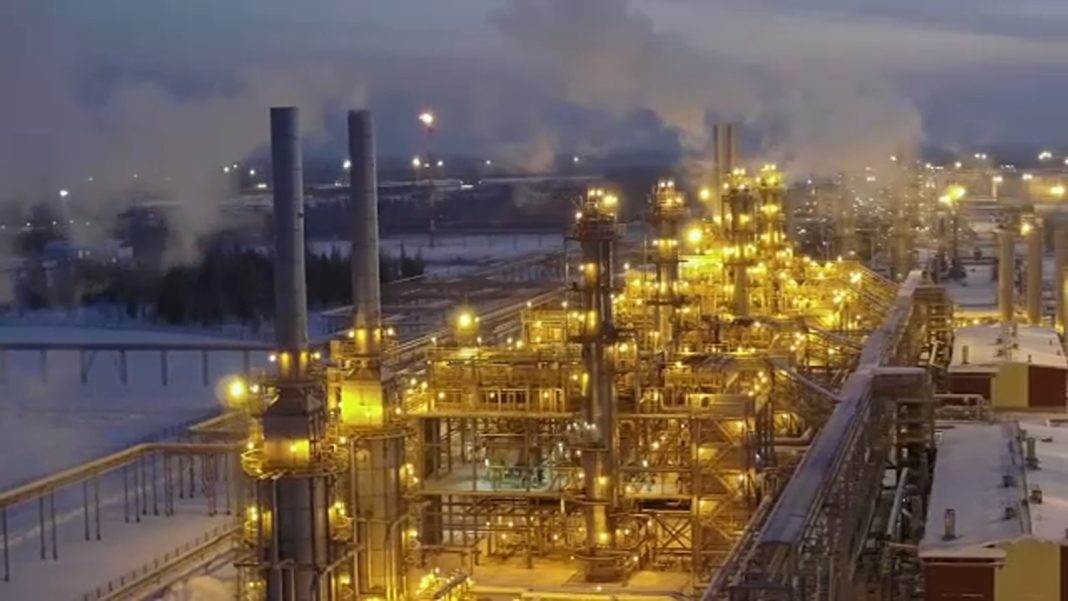AI in the Oil and Gas Industry: Enhancing Efficiency and Safety
Introduction
Artificial intelligence (AI) has long been a topic of fascination and concern, often portrayed in science fiction movies like “The Matrix.” While true AI may still be decades away, machine learning, a subset of AI, is already making significant strides in various industries. One such industry is oil and gas, where AI is proving to be a valuable tool in enhancing efficiency and safety.
AI in Oil and Gas: Assisting Decision-Making and Preventing Catastrophes
In the oil and gas sector, AI is assisting professionals in making critical decisions and avoiding potential catastrophes. By monitoring every device on offshore oil rigs in real-time, AI applications can provide advanced warnings of potential failures up to 18 hours in advance, allowing operators to shut down systems before they become problematic. Tom Siebel, CEO of C3.ai, explains that the industry has been adopting AI since 2016, with companies like Shell leading the way.
Diagnosing Issues and Assisting with Maintenance
AI is being utilized to diagnose issues and assist with maintenance in the oil and gas industry. For example, Shell uses AI to track half a million valves worldwide, predicting when a valve is likely to malfunction before it happens. According to Siebel, this proactive approach helps prevent disastrous consequences that can occur when valves get stuck open or closed. Furthermore, Chevron employs robots for tank inspections, reducing the need to put humans in hazardous confined spaces.
Impact on Jobs: Balancing Automation with Productivity
As AI becomes more prevalent in the industry, concerns arise about the impact on jobs. However, Bill Braun, Chevron’s chief information officer, believes that while some jobs may be affected or created, the majority will experience improvements in productivity. Rather than replacing workers entirely, AI technologies can enhance their capabilities and reduce mundane or dangerous tasks. Braun hopes that employees will regain up to 20% of their productivity, making their work more enjoyable.
Increasing Efficiency and Savings
When used correctly and with proper checks and balances, AI has the potential to increase efficiency and generate significant savings. Dr. Birol Dindoruk, a distinguished professor at the University of Houston, estimates that worldwide savings from AI in the oil and gas industry could reach trillions of dollars. Moreover, a recent report predicts that the value of AI in this sector will rise to nearly $6 billion by 2028.
Houston: A Hub for AI Innovation in Oil and Gas
Houston, already known as the energy capital of the world, is emerging as a hub for AI innovation in the oil and gas industry. The city boasts over 80 startups focusing on energy, energy transition, and clean technology. Chevron’s Braun emphasizes the importance of Houston’s role in applying AI to the energy transition, highlighting the city’s significant contributions to innovation.
Driving Forces behind AI in Oil and Gas
Several key trends are driving the expansion of AI in the oil and gas sector. These include increased use of data, rising demand for energy efficiency and sustainability, automation of repetitive tasks, optimization of exploration and drilling processes, and improved safety measures. AI is seen as an additional tool in the industry’s toolbox, helping professionals extract valuable information that may not be readily apparent to humans due to limitations in time and bandwidth.
Learning to Ask the Right Questions
To fully leverage AI’s potential, professionals must learn to ask the right questions. Prompt engineering, or the skill of formulating questions effectively, is crucial in extracting accurate and relevant information from AI systems. Tom Siebel advises that individuals do not need to be data scientists or have an in-depth understanding of AI; instead, they should focus on understanding generative AI, which enables the creation of new content. By asking the right questions, professionals can gain valuable insights and deliver optimal results.
Conclusion
AI’s integration into the oil and gas industry is inevitable. It offers numerous advantages, including enhanced efficiency, improved safety, and significant cost savings. While concerns about job displacement persist, AI technologies are more likely to augment human capabilities rather than replace them entirely. Houston’s role as an AI innovation hub further solidifies its position as a leader in the energy sector. As the industry continues to evolve, awareness and the ability to ask the right questions will be key in harnessing the full potential of AI in oil and gas operations.


